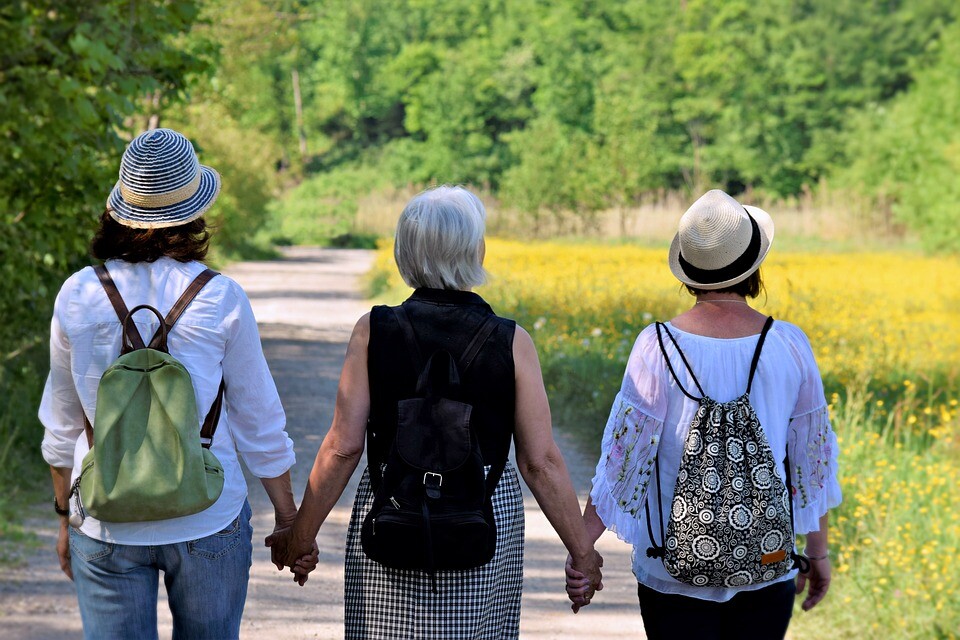 Hormone Support with Young Living
Hormone Support with Young LivingHormonal factors
Essential oils are plant-based, and some contain phytoestrogens. These are plant-based substances that behave in a similar way to the hormone estrogen.
Some experts believe that essential oils containing phytoestrogens may help balance hormones and relieve symptoms such as mood changes and hot flashes during menopause.
According to research, the following oils may support hormonal balance:
- Clary sage acts as an antidepressant in rats and lowers blood pressure in some people.
- Fennel reduces depression and anxiety in rats.
- Juniper (J. phoenicea and J. oxycedrus) may relieve pain through anti-inflammatory action in rats and mice.
- Angelica reduces anxiety in rats, according to an older study.
- Geranium relieves depression.
- Rose oil brings relaxation and pain relief.
- Neroli reduces anxiety and improves sleep.
- Lavender reduces stress, depression, and anxiety and helps improve sleep in rats.
- Jasmine relieves depression and uplifts mood.
Many of these studies took place in animals. While some of these oils may help people, there is little research to support many of these claims in humans and specifically for menopause.
Sexual dysfunction
Reduced libido, vaginal dryness, and other sexual changes are common during menopause. This can make sex less enjoyable.
A 2018 review and meta-analysis concluded that treatment with neroli or lavender or a combination involving lavender, fennel, geranium, and rose “significantly improved human sexual function.”
Areas that saw improvement included sexual desire, arousal, pain during sex, and difficulty experiencing orgasm.
However, the authors note that researchers need to carry out more more studies with stricter parameters to confirm these findings.
What is clary sage, and how can it help?
Anxiety, stress, and fatigue
Many people use aromatherapy to help them relax, for stimulation, and to ease anxiety. Many people experience anxiety, depression, fatigue, and mood changes around the menopause.
Research has suggested that aromatherapy oils can improve symptoms of anxiety and depression during this time of transition.
Learn here about how essential oils can help people with depression.
Some research has suggested that the following oils may help relieve a variety of symptoms during menopause.
Pine oil
Osteoporosis is a common problem in which the bones become less dense and more liable to break. The risk of osteoporosis increases as estrogen levels fall in the body during menopause.
In one earlier study, researchers administered pine oil to rats without ovaries. They concluded that compounds present in pine oil might reduce bone loss and help prevent osteoporosis.
Lavender
People use lavender to promote feelings of relaxation and support healthful sleep.
In a 2007 study, researchers found that massage treatment with various oils, including lavender, helped reduce menopausal symptoms, such as hot flashes, headaches, and heart palpitations in some people.
In 2016, researchers looked at the effects of lavender aromatherapy on hot flashes. Fifty participants smelled the aroma of lavender for 20 minutes twice a day for 12 weeks. Another 50 inhaled a placebo.
Those who received the lavender treatment reported a significant reduction in hot flashes. The researchers suggested the lavender may have reduced hot flashes by lowering stress levels.
Find out here how lavender and other oils can help relieve headaches, which many people experience during menopause.
Rose
Some researchers have proposed that rose oil strengthens the uterus, potentially addressing menstrual cycle issues. In menopause, rose oil may improve mood and reduce hot flashes by balancing hormones.
Geranium
Geranium may have similar benefits to rose oil, including balancing the hormones, supporting menstrual cycle regularity in perimenopause, and improving mood.
Learn more here about different essential oils and how to use them.
How to use the Oils:
Sprinkle 3-5 drops of essential oil in water and allow it to diffuse throughout a room. Depending on the oil, this can help promote relaxation during the day.
Roll-on or spray
Essential oils are also available in products that people can apply directly to the skin. Individuals should check the product comes from a reliable source and that the ingredients are safe because the Food and Drug Administration (FDA) do not regulate essential oils.
Massage
Dilute the oil with a carrier oil, such as coconut, jojoba, almond, or evening primrose oil. Either apply to pulse points or massage all or part of the body.
In a 2007 review of several essential oils, people who were experiencing menopause had a weekly massage of the abdomen, arms, and back for 8 weeks. They reported improvements in hot flashes, depression, and pain.
Essential oils have long played a role in traditional medicine, but there is little research into their effects on specific conditions.
This has led to uncertainty over:
- how much to use
- whether oils are safe for everyone
- the best way to use them
People should take the following precautions:
- Obtain oils from a reliable source and follow the manufacturer’s instructions.
- Use only the recommended dosage.
- Perform a small skin test before using any essential oil for a massage to check that there is no reaction.
- Introduce one oil at a time to assess each product for an allergic reaction.
- Avoid an oil if you have an allergy to the plant that it comes from, as it may trigger a reaction.
- Take additional precautions if you have asthma as a diffuser may trigger an asthma attack.
The FDA do not regulate essential oils because they do not consider them a treatment. This means people cannot know for sure what their oil contains, whether the quality is good, or how it may affect them.
When using oils, people should:
- Always mix essential oils with a carrier oil before use, especially for application to the skin.
- Apply a little to the skin first to check for an allergic reaction.
- Keep oils away from children.
- Obtain oils from a reputable source.
- Never swallow or consume an oil, as it is likely to be toxic.
Anyone who wishes to use essential oils for menopause should speak to their doctor first.
People should always dilute oils with a carrier oil before applying to the skin.
If people have severe symptoms during menopause, a doctor can prescribe medical treatment.
For many, however, lifestyle remedies are sufficient to bring relief.
Lifestyle tips include:
- eating a healthful, balanced diet and getting regular exercise
- limiting caffeine and alcohol intake
- quitting or avoiding smoking
- maintaining a moderate weight
- adopting stress management techniques, such as meditation and deep breathing
Results of a small study, published in 2018, suggested that weekly acupuncture might help relieve moderate to severe hot flashes and other symptoms.
Some people take black cohosh or DHEA supplements or increase their intake of soy, which contain phytoestrogens. However, the National Institute on Aging point out that there is not enough evidence to prove that these are safe or effective.
Aromatherapy may help improve a person’s sense of well-being during menopause, and some essential oils may help with specific symptoms.
Used wisely, it may help reduce anxiety and other stress-related symptoms. However, experts note there is not enough evidence to support the use of aromatherapy as a standalone treatment.
Before using an alternative medication for menopause symptoms, it is best to speak to a doctor to ensure they are safe and worthwhile.

